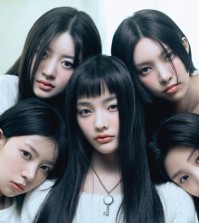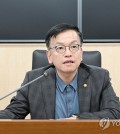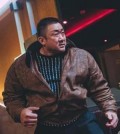- California Assembly OKs highest minimum wage in nation
- S. Korea unveils first graphic cigarette warnings
- US joins with South Korea, Japan in bid to deter North Korea
- LPGA golfer Chun In-gee finally back in action
- S. Korea won’t be top seed in final World Cup qualification round
- US men’s soccer misses 2nd straight Olympics
- US back on track in qualifying with 4-0 win over Guatemala
- High-intensity workout injuries spawn cottage industry
- CDC expands range of Zika mosquitoes into parts of Northeast
- Who knew? ‘The Walking Dead’ is helping families connect
IOC President Bach says PyeongChang Olympics can send ‘message of peace’ to world
By Yoo Jee-ho
SEOUL, Jan. 23 (Yonhap) — With the two Koreas having agreed to march in together at their opening ceremony, the 2018 PyeongChang Winter Games can send “the message of peace” to the rest of the world, the world Olympic chief said Tuesday.
In a teleconference with South Korean media, International Olympic Committee (IOC) President Thomas Bach said bringing together the two nations, which remain technically at war with each other even though hostilities in the Korean War came to an end in 1953, will represent a “powerful signal of the wish of the peace.”
“We’re in a historic situation. We have two divided states, which are technically at war because there is no peace treaty,” Bach said. “Athletes from these two states are technically at war. They will join in the opening ceremony of the Olympic Games (on Feb. 9) and send the message of peace. Coming myself from a formerly divided country, I know how strong such a message can be, about the powerful signal of the wish of the peace it can be,” he added, referring to Germany’s history of being divided into East and West Germany during the Cold War.
The Koreas came to an agreement on the joint march last Wednesday, and Bach chaired a meeting involving representatives from both sides Saturday and approved the Koreas’ request for their first joint march at an Olympics since 2006.
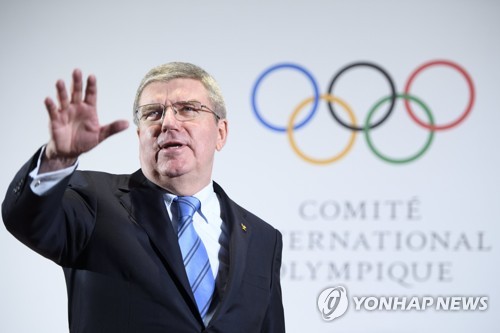 In this EPA photo taken Jan. 20, 2018, Thomas Bach, president of the International Olympic Committee, speaks before the North and South Korean Olympic Participation Meeting at the IOC headquarters in Lausanne, Switzerland. (Yonhap)
In this EPA photo taken Jan. 20, 2018, Thomas Bach, president of the International Olympic Committee, speaks before the North and South Korean Olympic Participation Meeting at the IOC headquarters in Lausanne, Switzerland. (Yonhap)
North Korea’s participation in the PyeongChang Games — let alone a joint march with South Korea — seemed in doubt last year, with a series of military provocations, including a nuclear test, which drove up tension in the region.
But North Korean leader Kim Jong-un changed all that by offering to send an athletic delegation to PyeongChang during his New Year’s message. South Korea welcomed the overture and the two sides reached their historic agreement just 17 days into 2018.
Bach said the IOC extended an invitation to North Korea, a regime that has come under significant international sanctions for continued nuclear weapons development, because the IOC treats all national Olympic committees equally.
“North Korea, like any national Olympic committee, has the right and even obligation to take part in the Olympic Games,” he said. “It is the mission of the Olympic Games and the IOC to treat everybody equally and to be politically neutral and to try to unite people.”
In all, 22 North Korean athletes will compete in women’s ice hockey, figure skating, short track speed skating, cross-country skiing and alpine skiing. In women’s hockey in particular, 12 North Korean players will join a 23-player South Korean team for the first-ever joint Korean Olympic team in any sport.
South Korea’s head coach, Sarah Murray, will have to include at least three North Koreans in her game rosters of 22 players — 20 skaters and two goaltenders. The IOC’s decision, and the South Korean government’s push to put together the joint team so close to the Olympics, have met with a backlash in Seoul.
Critics have pointed out that some South Korean players will unfairly lose their playing opportunities and they have been victimized by the government’s politically-driven initiative. But Bach, who said he has heard criticism, defended the decision as “a historically exceptional situation.”
“Not one player will lose her opportunity on the Olympic team. Everyone will have Olympic experience. Nobody is excluded,” he said. “The Olympic Games should, whenever possible, make a contribution to peaceful development through sport. The message that can go from PyeongChang to the world is that firstly, people want peace and athletes want peace, and secondly, it’s possible to live together in peace and to unite, even if you’re in competition.”
Some have derisively dubbed these Games the “Pyongyang Olympics,” given how the few North Korean athletes, along with the cheerleaders and the art troupe that are also on the way to PyeongChang, have stolen the thunder of the host nation.
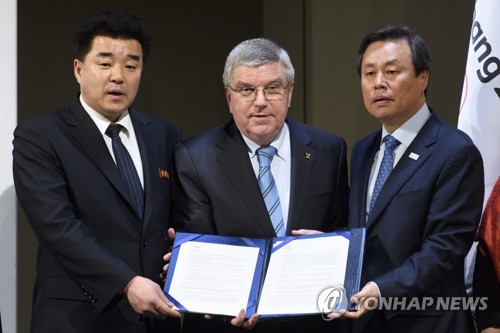 In this Associated Press photo taken Jan. 20, 2018, International Olympic Committee (IOC) President Thomas Bach (C), North Korean Sports Minister Kim Il-guk (L) and South Korean Sports Minister Do Jong-hwan hold up documents after a signing ceremony for the IOC’s North and South Korean Olympic Participation Meeting at the IOC headquarters in Lausanne, Switzerland. (Yonhap)
In this Associated Press photo taken Jan. 20, 2018, International Olympic Committee (IOC) President Thomas Bach (C), North Korean Sports Minister Kim Il-guk (L) and South Korean Sports Minister Do Jong-hwan hold up documents after a signing ceremony for the IOC’s North and South Korean Olympic Participation Meeting at the IOC headquarters in Lausanne, Switzerland. (Yonhap)
In response, Bach simply said people should be more respectful of their own country.
“This is a question of respect. Everybody should respect their own country. Everyone in South Korea should respect (the) excellent work having been done by the organizing committee (of PyeongChang 2018),” he said. “Everybody should respect their athletes from their country. They should support their athletes and respect other teams that are coming and be the good host for the best winter sports athletes from the world.”
Bach insisted sports alone can’t bring peace, saying, “Politics has to take its responsibility,” but he was non-committal when asked to deliver messages to leaders of the two Koreas, President Moon Jae-in in Seoul and Kim Jong-un in Pyongyang.
“The Olympic Games and the IOC are not for sending a message to individual countries or individual political leaders,” Bach said. “In the Olympic Movement, all 206 national Olympic committees are being treated equally.”
In announcing that North Korean athletes will compete in PyeongChang, the IOC also said it will provide any necessary technical equipment for those athletes in cooperation with their sports’ international federations.
Any form of financial support for North Korea could potentially weaken the united front in enforcing international sanctions, but Bach said, “IOC has always respected the U.N. sanctions and will always respect the U.N. sanctions,” without elaborating.
A former Olympic fencing gold medalist, Bach said he has come to know many winter sports athletes in his capacity as the IOC president and he’s looking forward to “many” winter sports in PyeongChang.
“I am really looking forward to some of the legends still competing that are coming back, like Lindsay Vonn (in women’s alpine skiing),” Bach said. “And new legends will be born there during these Olympic Winter Games.”







